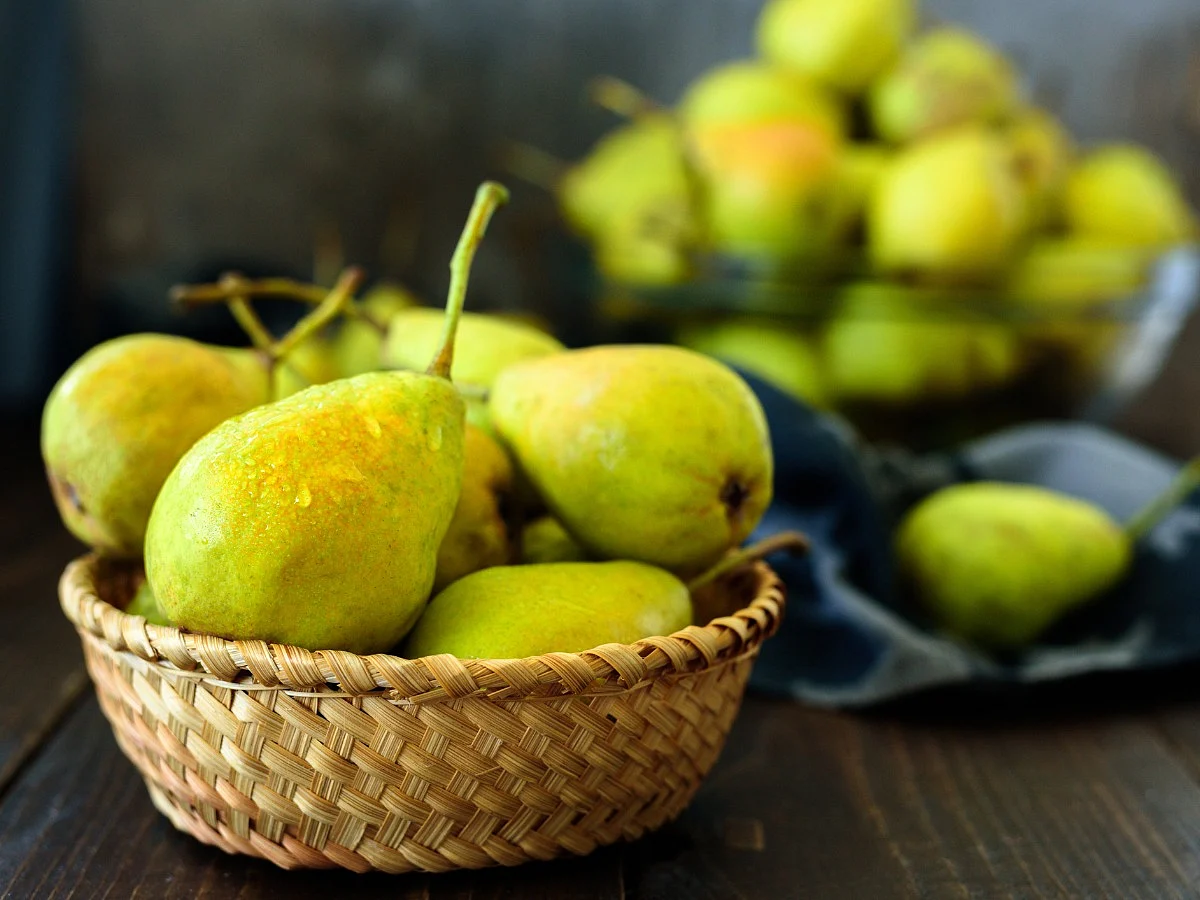7 Health Benefits Of Pear
Check the health benefits of pear for skin, hair, bones, and heart

advertisement
Pears are sweet, bell-shaped fruits that have been enjoyed since ancient times. They can be eaten crisp or soft. They’re not only delicious but also offer many health benefits backed by science. Pears come in many different varieties. Bartlett, Bosc, and D’Anjou pears are among the most popular, but around 100 types are grown worldwide. A small serving of pear provides small amounts of folate, provitamin A, and niacin. Folate and niacin are important for cellular function and energy production, while provitamin A supports skin health and wound healing.
Pears are a rich source of important minerals, such as copper and potassium. Copper plays a role in immunity, cholesterol metabolism, and nerve function, whereas potassium aids muscle contractions and heart function. Pears are an excellent source of polyphenol antioxidants, which protect against oxidative damage. Be sure to eat the whole pear, as the peel boasts up to six times more polyphenols than the flesh. Let's know more benefits of pear in detail below.
What Are the Benefits Of Eating Pears?
1. Good for skin and hair
Pears contain good amounts of vitamin A, the most versatile nutrient. It is beneficial for keeping the skin, hair, and nails healthy and beautiful. Hence eating pears helps in keeping your skin and hair healthy. It is also enriched with nutrients like zeaxanthin and lutein that take part in several organ functions and enzymatic reactions.
2. Improves bone health
Pear contains copper, calcium, phosphorus, manganese, and magnesium in significant amounts, which all play a crucial role in bone health. These minerals are required in very small amounts but play a crucial role in keeping the bones strong. People with conditions like osteoporosis are advised to include pears in their diet as it helps prevent and treat debilitating conditions and bone mineral loss. It ensures that your bones are getting enough minerals to grow and protect against inflammation and other conditions.
3. Helps reduce inflammation
Pears are high in flavonoids and antioxidant components. The anti-inflammatory properties of pear help to reduce swelling and pain associated with inflammation. People suffering from symptoms of gout and rheumatic conditions like arthritis are advised to eat pears to ease the symptoms and prevent them from worsening thereby also improving the quality of life.
4. Helps in improving blood circulation
Pears prove to be very beneficial for patients who suffer from mineral deficiencies like anemia, as they are high in iron and copper content. Increased levels of iron in the body boost the synthesis of red blood cells. In addition, increased levels of copper in the body help facilitate the synthesis of essential minerals and the absorption of iron into the system. Eating pears helps to prevent muscle weakness, cognitive malfunction, fatigue, and organ system malfunction.
5. Helps with healing
Pears are a good source of vitamin C and thus help in healing wounds. Ascorbic acid in pears helps in synthesizing cellular structures of the body and new tissues in the various organs. So, whenever there is a burn or cut, it makes sure that the damaged area is healed quickly. You can include pears in your diet for fast healing if you are injured.
6. Improved heart health
Pears are one of the fruits that have an inverse relationship with stroke risk. Pear fruit being high in potassium content, acts as a vasodilator that helps in lowering blood pressure. This further results in increased blood flow in all parts of the body that helps in providing oxygen to organs. This oxygenation of the organs promotes their effective function. In addition, the high fiber content in pears ensures good heart health.
7. Pear has anti-cancer properties
The antioxidant properties in pear have the potential to kill cancer-causing cells in our bodies. Antioxidants are known for their anti-carcinogenic activities that have been connected to the prevention of cancer. Phytonutrients like flavonoids and cinnamic acids found in pears help reduce the risk of cancer. The antioxidants flush out free radicals from the body, allowing for new and healthy cell growth.